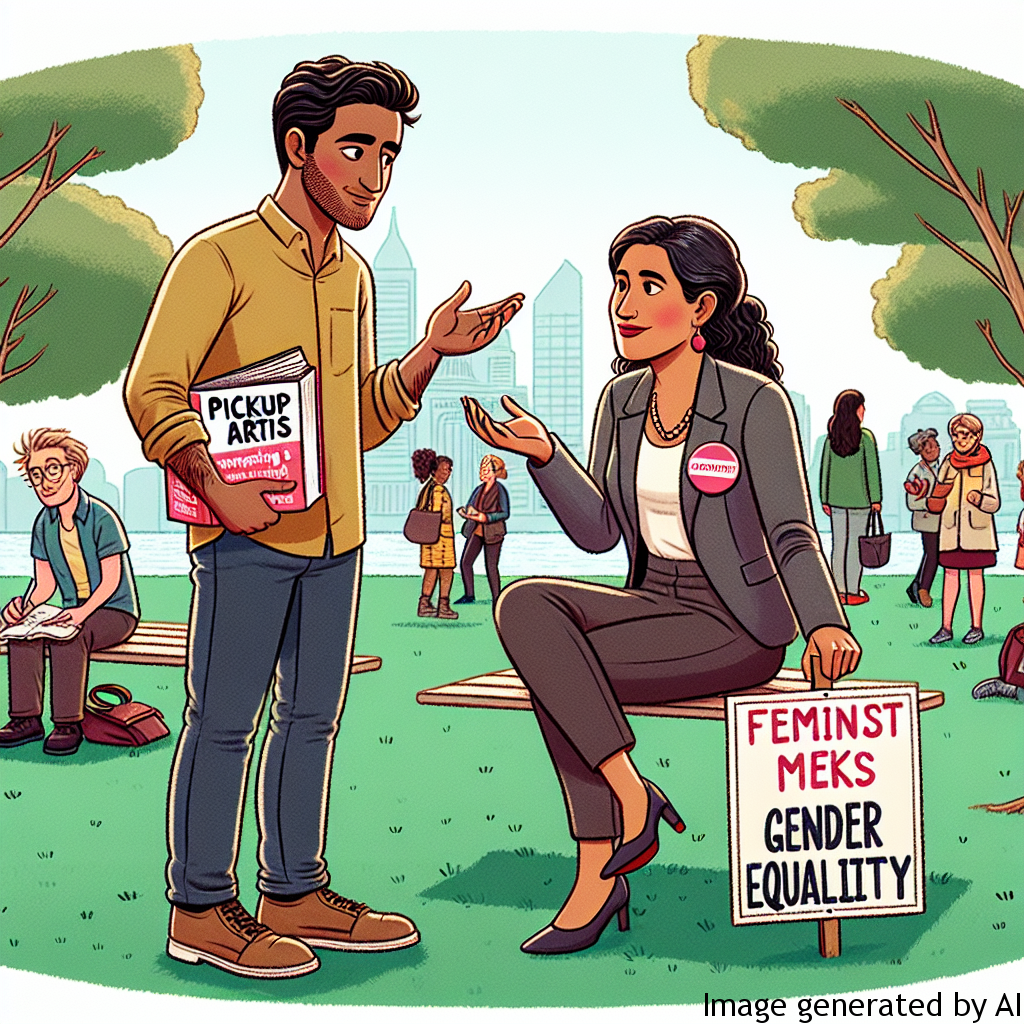Introduction
The last few years have seen an unprecedented growth in the discourse around gender dynamics, very emphatically within the scopes of pickup culture and feminism. Both movements are critical to understanding because they navigate the delicate and often complex intersections of human socialization, relationships, and sexuality. Although they are often viewed in opposing lights, a more profound exploration reveals points of intersection and rampant contention.
Gender Expectations and Their Impact on Men’s Psychological Health
For many years, societal norms have dictated how members of each gender are supposed to behave, resulting in shaped perceptions and expectations of masculinity and femininity. It is these expectations that have severe implications for men’s psychological health.
Exploring Societal Expectations
Men in various societies are often expected to be dominant, emotionally resilient, heterosexual, and protective. From a young age, they’re encouraged to suppress emotions aside from anger, with phrases like “real men don’t cry” quite prevalent. They’re also often discouraged from seeking help or admitting vulnerability, which is mostly seen as a break from the traditional male-character mould.
Implications for Men’s Psychological Health
The enforcement and internalization of such stereotypical gender roles can lead to a multitude of psychological issues for men. This includes depression, increased vulnerability to stress, higher susceptibility to substance abuse, and other mental health disorders. Men also experience a higher likelihood of suicide, primarily due to societal expectations of self-reliance and the stigmatization associated with reaching out for help.
How Gender Roles Can Influence Men’s Lives
Gender roles and societal expectations not only affect psychological health but also influence major aspects of men’s lives. Career choices, for example, are often influenced by masculinity stereotypes, disadvantaging those who wish to pursue “non-masculine” professions. Also, these gender norms can negatively impact men’s interpersonal relationships, parenting styles, and even their overall quality of life. The ability to express emotion, form deep relationships, seek help, and embrace their authentic selves can all be undermined by the pressures of traditional gender roles.
Tips for Improving Psychological Health Considering Gender Roles
The first step towards mitigating the harmful effects of gender expectations involves recognizing them and their impacts. Men should be encouraged to challenge societal norms that equate masculinity with emotional stoicism and learn to express their feelings healthily. Professional help should also be normalized, and educational strategies that reinforce damaging gender stereotypes in youths should be reassessed. The importance of exercise, good nutrition, and plenty of sleep for maintaining good psychological health cannot be over-emphasized.
Conclusion
Both the pickup culture and feminism movement have their roles to play in navigating the sociocultural minefield of gender roles and expectations. The pickup culture seeks to empower men by enhancing their confidence and social skills. In contrast, feminism fights for equal rights and opportunities across genders, challenging patriarchal norms, which harm both men and women. By understanding and acknowledging the impact of gender roles on men’s psychological health, society can take significant strides towards fostering a more inclusive and understanding environment for everyone, regardless of their gender.

